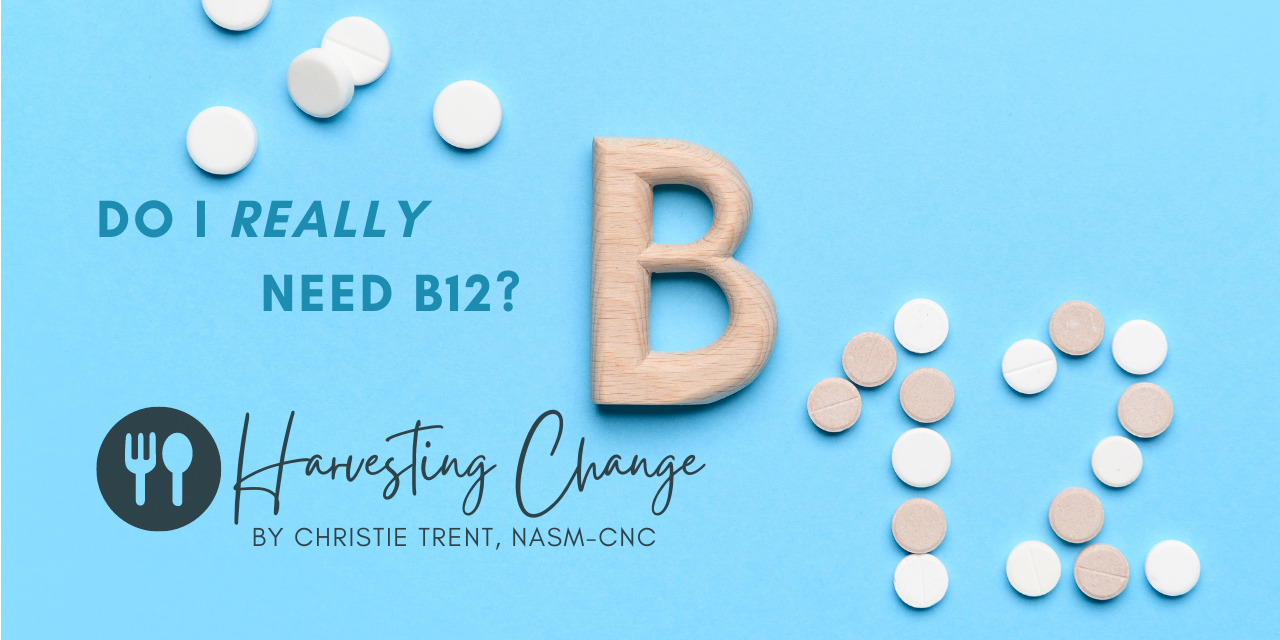
If you talk about a vegan diet for long, it's inevitable that someone will insist you can *only* get vitamin B12 from meat,
warning that without it, we'll all perish. You are likely to encounter a barrage of trolls ridiculing the vegan need for supplementation,
unwilling to consider any alternative viewpoint. However, vitamin deficiencies can occur in individuals of all ages and dietary
preferences. It's important to note that deficiencies aren't always a result of diet alone. Factors such as absorption issues
due to medication or medical conditions are common culprits. Surprisingly, many who suffer from vitamin deficiencies actually consume meat.
That's right, folks, even if you do consume animal products, you may still be deficient in B12. The reason is that the B12 in
animal products is produced by bacteria, and the animals we eat are often supplemented with B12. So, why not just take a supplement yourself?
That is if you even need it. Some symptoms can be present in specific deficiencies, like numbness or tingling
in the hands and feet, but to truly determine if you are deficient, you should get a blood test.
And while you aren't likely to "overdose" on any nutrient in your diet, some vitamins and minerals can be harmful in excess. So, if you want
to be safe, I would highly recommend a blood test. In an medical lab, they are more likley to drag blood, but I prefer the home-based
finger prick tests. They are easy to use and can be done in the comfort of your own home. You can order them online and send them back. Some
companies you may want to consider are LetsGetChecked
or EverlyWell.
To supplement or not to supplement - that is the question! Well, with B12, it would be difficult to get too much, and it takes
years to not have enough. Years, you ask? That's right - your body can store B12 for years.
Your body stores B12 in the liver, and the time it takes to deploete those stores
can vary from person to person and
can depend on factors such as diet, age, absorption rates, and overall health.
It would take the average healthy
people several years to become deficient even if they completely stopped consuming
B12 (either through
diet or supplementation).
The liver stores about 2-5 milligrams of vitamin B12 in adults, and the body's
daily requirement is relatively low (about 2.4 micrograms for most adults).
This means that even if a person stops consuming B12, their body can rely on
these stores for a significant period before deficiency symptoms develop.
But if and when you are choosing a B12, keep in mind not all B12 are created equal!
Methylcobalamin
Energy production Methylcobalamin plays a key role in converting food into energy. It is involved in the metabolism of fats, proteins, and carbohydrates, which are essential for energy production.
Brain function Methylcobalamin is important for maintaining healthy nerve cells and supporting cognitive function. It is involved in the synthesis of neurotransmitters, which are crucial for brain health and mood regulation.
Cyanocobalamin
Energy production Like methylcobalamin, cyanocobalamin is involved in energy metabolism and can help combat fatigue and promote overall energy levels.
Red blood cell formation Cyanocobalamin is essential for the production of red blood cells, which are responsible for carrying oxygen throughout the body.
Hydroxocobalamin
Detoxification Hydroxocobalamin has been used as a treatment for cyanide poisoning because it can bind to cyanide and facilitate its excretion from the body.
Red blood cell formation Similar to cyanocobalamin, hydroxocobalamin is important for the production of red blood cells and the prevention of anemia.
Adenosylcobalamin
Energy production Adenosylcobalamin is involved in the breakdown of fats, proteins, and carbohydrates, which are necessary for energy production.
Nervous system health Adenosylcobalamin is important for maintaining a healthy nervous system and supporting proper nerve function.
These forms of vitamin B12 work together to support various aspects of health, including energy production, brain function,
and overall well-being. If you need help choosing something that may be right for you and your needs, we can set up a 30 minute consultation.
Read More: Healthline: Methylcobalamin vs Cyanocobalamin